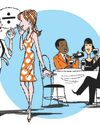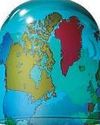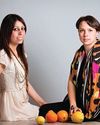Versuchen GOLD - Frei
The Power Of Touch
Reader's Digest International
|May 2017
It’s vital for our health, wellness and happiness, say the world’s leading neuroscientists.

EVERY TWO OR THREE MONTHS, Thyago Ohana goes out on the busy streets of Vienna with a big smile and a sign saying “Free Hugs.” The handsome 32-year-old Brazilian, who works in international trade at India’s Vienna embassy, chooses a popular locale, like the historic shopping street Kaerntner Strasse. There he opens his arms to anyone who wants a hearty embrace.
He does it because once, back in 2012, when he was feeling very stressed and anxious during a visit to Paris, a stranger gave him a free hug. He’s never forgotten how it filled him with unexpected calm and joy.
For those who take up his offer, getting a hug makes them laugh and smile. But sometimes it does more, as when an elderly woman in a tour group stopped and watched him. The group moved on, but she asked, “Can I have a hug?”
“Of course you can!” said Thyago who wrapped his arms round her.
When they broke their embrace, she kept holding onto his shoulders and looked into his eyes. “Thank you,” she said. “I can’t remember the last time I was hugged this way.”
It’s a memory that still makes Thyago emotional. “It was a really powerful moment of human connection. It is why I keep doing it.”
Of our five senses, our sense of touch is the one we are most apt to take for granted and yet the one we can least do without.
“A child can be born blind or deaf and they will grow up just fine, with no cognitive impairments,” says US neuroscientist David J. Linden, author of Touch: The Science of Hand, Heart, and Mind. “Yet if an infant is deprived of loving social touch for the first two years of life, then all sorts of disasters unfold.”
Diese Geschichte stammt aus der May 2017-Ausgabe von Reader's Digest International.
Abonnieren Sie Magzter GOLD, um auf Tausende kuratierter Premium-Geschichten und über 9.000 Zeitschriften und Zeitungen zuzugreifen.
Sie sind bereits Abonnent? Anmelden
WEITERE GESCHICHTEN VON Reader's Digest International

Reader's Digest International
The Secret Lives Of Passwords
We despise them—yet we imbue them with our hopes, dreams, and dearest memories.
5 mins
August 2017
Reader's Digest International
7 Doctor Approved Natural Remedies
A plant fix over a prescription drug? Some doctors swear by it.
7 mins
August 2017
Reader's Digest International
The Nature Cure
Doctors from California to South Korea believe they’ve found a miracle medicine for our mental health and creativity.
8 mins
August 2017

Reader's Digest International
Oh, Behave!
The classiest ways to split a bill, send your sympathies,say no, and more.
9 mins
August 2017

Reader's Digest International
World Of Medicine
News from the world of medicine.
1 mins
May 2017

Reader's Digest International
Surviving Substandard Sleep
How to cope after a bad night’s slumber
2 mins
December 2017

Reader's Digest International
Good News
Some of the Positive Stories Coming Our Way
2 mins
December 2017

Reader's Digest International
Medical Mystery
THE PATIENTS: Katie*, 26, and Ella*, 24, of Boston, United StatesTHE SYMPTOMS: Late-onset speech and motor-skill delayTHE DOCTOR: Dr. David Sweetser, chief of medical genetics and metabolism at the Mass General Hospital for Children
3 mins
December 2017

Reader's Digest International
News From The World Of Medicine
A commission of experts assembled by the medical journal
1 mins
December 2017

Reader's Digest International
Making Yogurt, Healing Minds
How a psychologist turned entrepreneur— and helped turn around lives
8 mins
December 2017
Translate
Change font size
